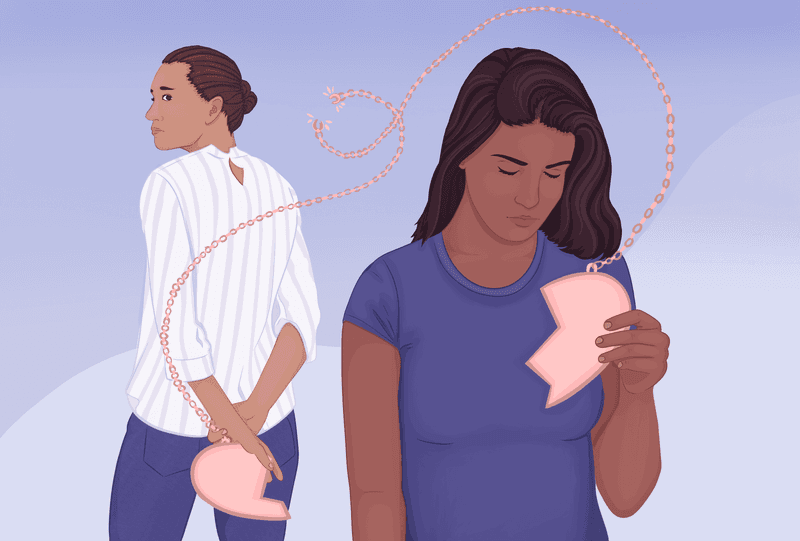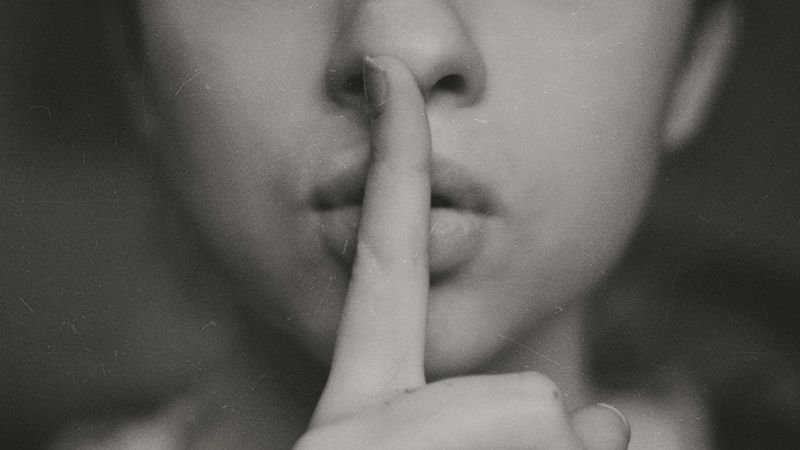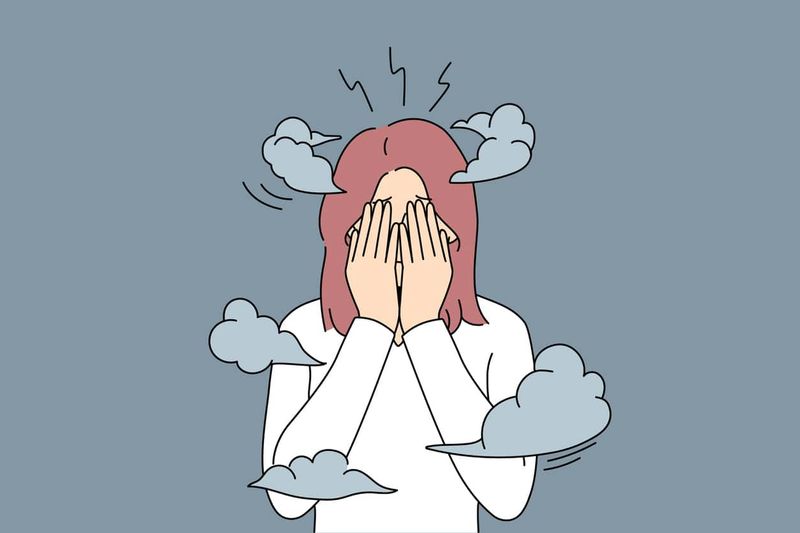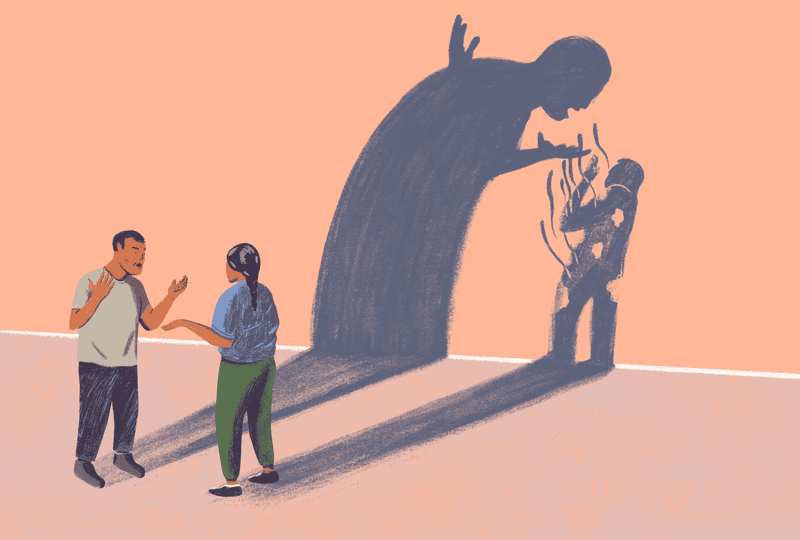19 Signs You’re Better Off Without Your Partner
Relationships can be complex and challenging. Sometimes, it’s hard to recognize when a partnership is more harmful than helpful.
This blog post will explore 19 signs that indicate you might be better off without your partner, focusing on emotional, mental, and energetic shifts that suggest the relationship is weighing you down.
The goal is to empower you to recognize these signs and make informed decisions that prioritize your well-being and happiness.
1. When Staying Feels Heavier Than Letting Go

The weight of staying in a relationship can sometimes feel like an anchor holding you back. At times, letting go seems like a lighter, more freeing option. When the thought of staying drains your energy more than the thought of leaving, it’s a significant sign.
A relationship should uplift and inspire, not feel like an unending obligation. If the emotional toll feels heavier day by day, it might be time to reconsider.
Imagine a life where your emotional backpack is lighter. It’s essential to assess how much you’re willing to carry and what truly brings you peace. Are you ready to release what no longer serves you?
2. You feel more relief than grief when they’re gone

Sometimes, solitude feels like a warm embrace. If you find yourself breathing easier when they aren’t around, it may be a sign that their presence is more burdensome than comforting. The relief experienced during their absence can be telling.
Everyone deserves a relationship that feels like a safe haven, not a storm. Acknowledging the calmness of solitude might reveal the storm you’ve been weathering.
Picture a sanctuary where peace reigns. If that quiet feels more natural and comforting than togetherness, it might signify something important about your relationship. Reflect on whether your current circumstances serve your inner peace or disrupt it.
3. You’ve started lying to keep the peace

Little white lies often mask deeper issues. When you start bending the truth to avoid conflict, it’s a red flag. Relationships thrive on honesty and trust, and when those foundations crack, the structure becomes unstable.
Lying to maintain harmony suggests fear of honesty’s consequences. This fear can erode your sense of self over time.
Consider the cost of these untruths. Are they worth the temporary calm if they lead to long-term discord? Reflect on the importance of authenticity and whether it’s valued in your current relationship.
4. Your confidence is shrinking, not growing

A healthy relationship should be a platform for growth. Yet, if you notice your self-esteem diminishing, it’s worth examining why. Feeling smaller, less significant, or unsupported is never a hallmark of healthy love.
True partners lift each other up. If your partnership is causing self-doubt and insecurity, it’s crucial to weigh these feelings against your relationship’s supposed benefits.
Reflect on your growth trajectory. Are you expanding and thriving, or shrinking under pressure? Remember, love should be an enriching journey, not a diminishing one. Your confidence should be blossoming, not withering away.
5. You crave quiet more than their presence

Silence can be golden, but when it’s preferable to your partner’s presence, it might signal a deeper issue. Desiring quiet over connection could mean the relationship is more draining than fulfilling.
Your time together should feel rejuvenating, like a favorite novel you can’t put down. If silence speaks louder, it may be time to listen.
Consider the tranquility of quiet moments. Are they enriching your soul more than the relationship? This craving for silence might reflect your inner needs, calling for introspection and perhaps a change of course.
6. You’ve stopped sharing your wins

Celebrating personal victories is part of a fulfilling relationship. If you’ve stopped inviting your partner into your triumphs, it may indicate disconnection or lack of support.
Sharing victories should bring happiness, not apprehension. If it feels safer to keep successes to yourself, it’s time to question why.
Think about the joys of shared celebration. Do you shy away from sharing due to fear of jealousy or indifference? Reflecting on these feelings might reveal the need for a partner who truly celebrates with you.
7. You feel like you’re walking on eggshells constantly

Living in fear of upsetting your partner is exhausting. If you’re always on edge, it’s a sign of a toxic pattern. Healthy relationships encourage openness, not constant worry.
Consider why you’re treading lightly. Is it fear of their reactions or a pattern of criticism?
Reflecting on these feelings can highlight the imbalance. A supportive relationship should offer comfort, not anxiety. Recognizing this pattern may be the first step toward seeking a more balanced and understanding connection.
8. You’re doing all the emotional labor

If you feel like the relationship’s emotional caretaker, it’s a sign of imbalance. Emotional labor should be shared, fostering mutual understanding and support.
Carrying the emotional weight alone can lead to burnout and resentment. It’s important to assess whether your partner is contributing equally.
Reflect on the give-and-take dynamics. Are you the constant giver, while your partner remains oblivious? Identifying this imbalance might encourage a reevaluation of roles and responsibilities within the relationship.
9. You no longer feel seen—even when you’re trying

Feeling unseen can be isolating. If you’re putting effort into the relationship but still feel invisible, it’s a sign that your needs are going unmet.
A partner should recognize and appreciate your contributions. If you’re yearning for acknowledgment, it might be time to address these unmet needs.
Consider the importance of feeling valued. Does your partner see and appreciate you for who you are? Reflecting on these questions can highlight whether your relationship is nurturing or neglectful.
10. Your needs are consistently met with resistance

When your needs are met with resistance rather than understanding, it’s a significant red flag. Every relationship requires compromise and empathy.
Facing constant pushback can lead to feelings of frustration and abandonment. It’s crucial to evaluate if your needs are being considered and respected.
Think about how your needs are addressed. Are they dismissed or met with empathy? This resistance could signal a deeper issue, calling for introspection and perhaps reevaluation of the relationship’s compatibility.
11. You fantasize about a life that doesn’t include them

Dreaming of a life without your partner might indicate dissatisfaction. While daydreaming is natural, consistently envisioning a solo future could reveal deeper desires for independence.
It’s important to explore what these fantasies represent. They might highlight unmet needs or aspirations that your current relationship doesn’t support.
Consider the dreams that fill your mind. Are they a temporary escape or a glimpse into your true desires? Reflecting on these visions might offer clarity about your relationship’s place in your future.
12. You catch yourself explaining away red flags

Ignoring red flags is a common yet dangerous habit. If you’re justifying behaviors that make you uncomfortable, it might be a sign of deeper issues.
It’s crucial to acknowledge what these red flags represent. Each ignored warning could be a step further into a toxic dynamic.
Reflect on what you’re overlooking. Are you excusing behaviors that should be addressed? Recognizing these patterns might empower you to prioritize your boundaries and well-being.
13. You dread spending time together

Spending time with a partner should be enjoyable, not a chore. If you’re dreading these moments, it might reflect underlying discontent.
Time together should feel like a cherished part of your day, not an obligation. It’s important to consider what this dread signifies.
Think about your feelings before and after spending time together. Are you eager or relieved when it ends? These emotions might indicate whether your relationship is a source of joy or merely a duty.
14. You’re more yourself around anyone else

If you feel more authentic around others than your partner, it might signal a disconnect. A relationship should encourage you to be your true self.
Consider why you feel constrained. Is there a lack of acceptance or understanding from your partner?
Reflect on your sense of self. Are you masking aspects of your personality? Recognizing this pattern might inspire you to seek a relationship where you can be unapologetically you.
15. You feel drained more than you feel loved

Feeling drained more often than loved can indicate an imbalanced relationship. Love should energize and support, not exhaust you.
Evaluate the emotional exchanges. Are they nurturing or depleting? This imbalance might suggest the need for change.
Reflect on your emotional reserves. Are they being replenished or constantly depleted? Recognizing this pattern could lead to seeking a more balanced and fulfilling partnership.
16. You’ve stopped asking for what you need

Silencing your needs can lead to resentment. If asking feels futile or burdensome, it’s a significant concern.
Consider why you’ve stopped voicing your needs. Is it fear of rejection or a pattern of unmet requests?
Reflect on your comfort in expressing needs. Are they met with understanding or dismissed? Recognizing this silence might encourage a reassessment of your relationship’s dynamics.
17. Your future together feels like a burden, not a dream

When the thought of a shared future feels more like a weight than a joy, it’s a serious consideration. A future with someone should inspire hope, not dread.
Consider the dreams you have for the future. Are they aligned with your partner’s vision or causing anxiety?
Reflect on your aspirations. Are they supported or stifled? Recognizing this burden might lead to pursuing a path that aligns with your genuine dreams.
18. The love feels like a memory—not a reality

If love feels like a distant memory rather than a present reality, it might signal that your relationship is fading. Nostalgia can be bittersweet, but it shouldn’t overshadow today’s feelings.
Reflect on what has changed. Is love still a vibrant part of your relationship or a relic of the past?
Consider the present state of your love. Is it thriving or merely surviving on past memories? Recognizing this might guide you towards a relationship that feels alive and present.
19. You’ve realized your peace is louder without them

Realizing that your peace is more profound without your partner can be eye-opening. True peace should coexist with love, not be absent.
Reflect on the moments of solitude. Are they more harmonious without your partner’s presence?
Consider the value of your peace. Is it compromised by the relationship? Recognizing the importance of your serenity might inspire you to prioritize it above the relationship.







